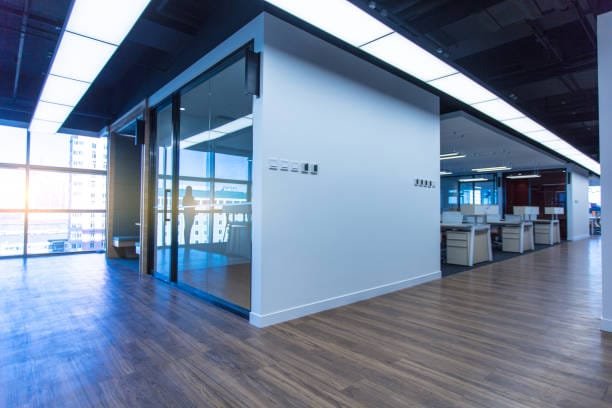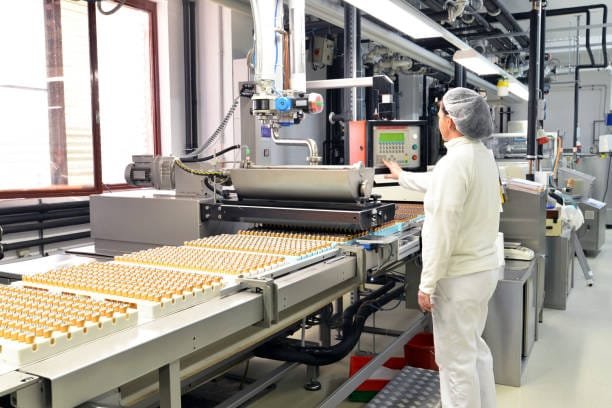HVAC SYSTEMS FOR RETAIL AND FOOD STORAGE APPLICATIONS
At TrueHVAC, we are a trusted dealer and distributor of advanced HVAC solutions tailored to meet the specific needs of retail and food storage applications. HVAC systems are essential in these environments for ensuring comfort, product preservation, and operational efficiency. In retail spaces, HVAC systems maintain a comfortable temperature for customers and employees, while also preserving the quality of temperature-sensitive products like electronics, clothing, and cosmetics by preventing humidity and temperature fluctuations.
Importance of HVAC Systems in Retail Spaces
HVAC systems are vital for maintaining a comfortable and inviting atmosphere in retail spaces. They ensure consistent indoor temperatures, keeping customers and staff comfortable throughout the day. Proper ventilation improves air quality, providing a fresh and pleasant shopping environment.
Customer Comfort
A well-regulated indoor climate enhances the shopping experience, encouraging customers to spend more time in the store.
Zoning Capabilities
Modern HVAC systems can create customized zones, allowing different areas of the store to maintain optimal temperature settings based on specific requirements.
Energy Efficiency
Advanced HVAC systems are designed to reduce energy consumption, helping retailers save on operational costs without compromising performance.
Product Preservation
For businesses selling temperature-sensitive items like electronics, clothing, or cosmetics, HVAC systems help preserve product quality by preventing damage caused by high humidity or fluctuating temperatures.
The Importance of HVAC in Food Storage Facilities
HVAC systems play a crucial role in maintaining the ideal environment for food storage, ensuring both product quality and safety. These systems regulate temperature, humidity, and air quality, which are essential for preserving perishable goods and preventing spoilage.
How HVAC Systems Address Bacteria and Virus Mitigation
Temperature Control
HVAC systems maintain precise temperature levels required for different types of food storage, from refrigeration for dairy products to freezing for meat and seafood. Proper temperature control helps extend the shelf life of perishable items and prevents bacterial growth.
Humidity Control
Maintaining the right level of humidity is critical to preventing mold, condensation, and spoilage in food storage areas. HVAC systems ensure that humidity levels are kept in check, which is especially important in refrigerated and frozen storage environments.
Regular Complaince
Food storage facilities must adhere to strict health and safety standards. HVAC systems help ensure compliance by maintaining the temperature and humidity conditions required by food safety regulations, preventing contamination and keeping food safe for consumption.
Air Quality Control
Proper ventilation reduces odors, prevents the buildup of contaminants, and ensures that fresh air circulates throughout the storage area. This is particularly important in food storage areas where odors and cross-contamination could affect the quality of goods.
Applications of HVAC in Retail and Food Storage
Retail Spaces
In retail spaces such as shopping malls, supermarkets, department stores, and boutique shops, HVAC systems are essential for maintaining a comfortable environment for both customers and staff. They regulate temperature, humidity, and air quality to ensure that shoppers remain comfortable, encouraging longer visits and better shopping experiences. HVAC systems also play a key role in protecting temperature-sensitive products, such as electronics, clothing, cosmetics, and even food products, from damage caused by improper environmental conditions.

Food Storage Facilities
In food storage facilities, HVAC systems are critical for maintaining the proper temperature and humidity conditions to preserve the freshness, safety, and quality of food. For example:
Cold Storage Warehouses
These facilities store perishable goods like fruits, vegetables, dairy, and pharmaceuticals that require constant refrigeration. HVAC systems ensure that these items remain at the required temperatures to prevent spoilage and preserve their shelf life.
Supermarkets with Fresh Produce Sections
Supermarkets need HVAC systems to regulate the temperature in produce sections, keeping fruits and vegetables fresh while preventing premature ripening.
Meat and Seafood Storage
These products require stringent temperature control to prevent bacterial growth and maintain freshness. HVAC systems ensure that cold storage areas stay within the proper temperature range.
Frozen Food Warehouses
HVAC systems are used in frozen food storage areas to maintain extremely low temperatures, preserving the quality of frozen items like meats, frozen vegetables, and ready-to-eat meals.

Food Processing
HVAC systems are also vital in food processing and preparation areas where hygiene and precise temperature control are critical. These systems help maintain consistent air quality and temperature conditions, preventing contamination during food preparation. For example:
- Maintaining Temperature Standards: In kitchens and food processing plants, HVAC systems ensure that temperature-sensitive processes such as cooking, cooling, or storage occur within the proper conditions.
- Hygiene Control: HVAC systems help maintain a clean, sanitized environment by providing adequate ventilation, reducing contaminants in the air, and ensuring that any airborne pathogens are removed or filtered out.
In all these applications, HVAC systems are key in regulating temperature, humidity, air quality, and hygiene, which are essential for maintaining the safety and quality of both retail products and food items.
Why Choose TrueHVAC for Retail and Food Storage HVAC Solutions?

Extensive Product Range
We offer advanced HVAC systems from leading manufacturers to suit diverse needs.

Tailored Solutions
Our experts design HVAC systems customized to your facility’s unique requirements.

Professional Installation
We ensure seamless system integration by skilled technicians.

Ongoing Support
Our maintenance and repair services keep your HVAC systems running efficiently.
Benefits of HVAC Systems in Retail and Food Storage
Improved Customer Comfort
Benefits of HVAC Systems in Retail and Food Storage
Product Preservation
Maintaining the right temperature and humidity prevents spoilage and keeps products fresh, ensuring food safety and quality.
Regularly Compliance
HVAC systems help food storage facilities meet health and safety regulations by maintaining the required temperature and humidity levels.
Air Quality Control
Good ventilation improves air quality, reducing contaminants and odors, creating a healthier environment for customers and employees.
Energy Efficiancy
Modern HVAC systems optimize energy use, reducing costs and minimizing waste, while also supporting sustainability efforts.
Extended Shelf Life
By controlling temperature and humidity, HVAC systems help extend the shelf life of perishable products, reducing waste.
Improved Hygiene
HVAC systems support hygiene in food processing areas by ensuring clean air and proper temperature control, reducing the risk of contamination.
Customized Climate Control
Zoning capabilities allow for tailored climate control, ensuring optimal conditions for different areas like produce, meat, and frozen goods.
Frequently Asked Questions?
1. Why is HVAC important for retail spaces?
HVAC systems are essential for creating a comfortable environment for customers and employees, regulating temperature, humidity, and air quality, which enhances the shopping experience and product quality.
2. How does HVAC help preserve food in storage?
HVAC systems maintain the right temperature and humidity levels in food storage facilities, preventing spoilage, extending shelf life, and ensuring food safety by adhering to health and safety standards.
3. What types of products benefit from HVAC in retail stores?
Temperature-sensitive products like electronics, clothing, cosmetics, and perishable food items benefit from HVAC systems, as they help preserve product quality and prevent damage from improper environmental conditions.
4. How does HVAC improve energy efficiency in food storage?
Energy-efficient HVAC systems optimize temperature and humidity control, reducing energy waste and lowering utility costs, making food storage facilities more sustainable and cost-effective.
5. Can HVAC systems help with food safety compliance?
Yes, HVAC systems ensure food storage facilities comply with regulatory requirements by maintaining precise environmental conditions, which helps prevent contamination and ensures food safety.
6. How does HVAC control air quality in food storage?
HVAC systems improve air quality by providing proper ventilation, removing contaminants, and ensuring fresh air circulation, which helps maintain the freshness of food and a healthy environment for staff.
Optimize Your Retail and Food Storage Environment with TrueHVAC
Contact us today to learn more about our solutions or to schedule a consultation. Let us help you create a controlled and efficient environment for your business.
